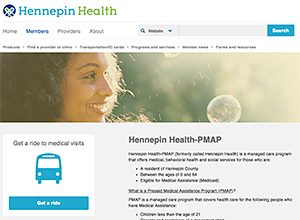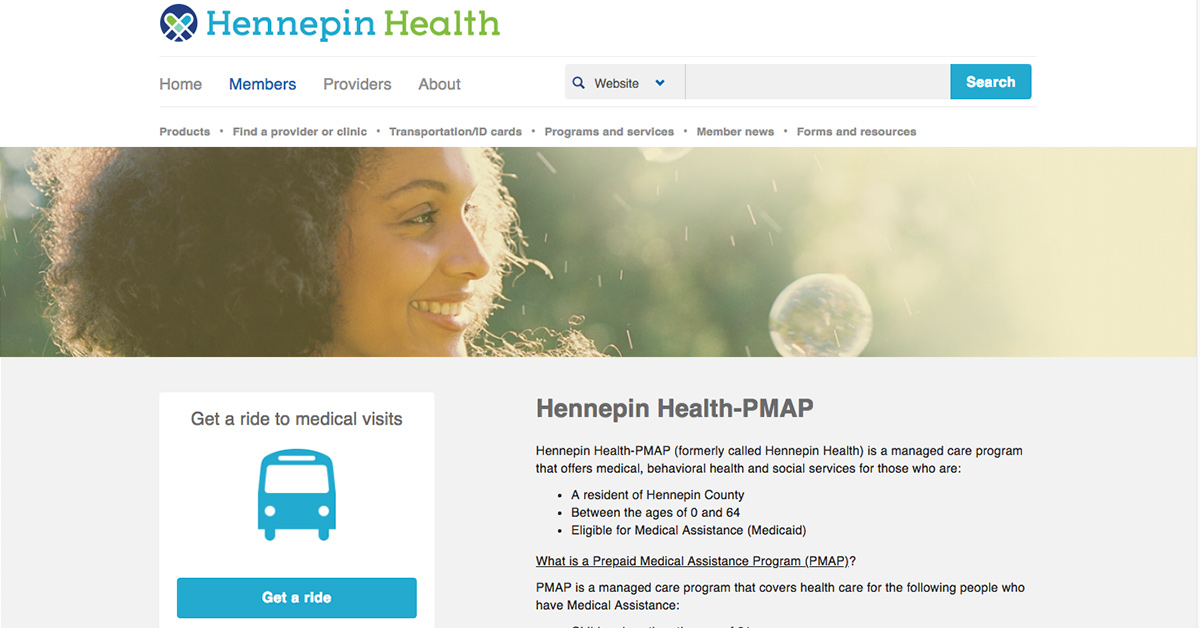 Across the nation, clinics and health systems are trying to figure out how to provide Medicaid patients with excellent care while containing costs. Many providers are taking a relatively new approach by forming what are known as accountable care organizations (ACOs). ACOs are groups of doctors, hospitals, and other health care providers, who come together to give coordinated, high-quality care to their patients. It is thought that the comprehensive nature of ACOs could benefit highly vulnerable populations who experience social disadvantage and have medically complex conditions. Now, two joint studies with the School of Public Health suggest that this may be the case by showing that very low-income adults had more primary care visits in a Minnesota Medicaid ACO compared to other local public health care programs, and that primary care is important for quality of life.
Across the nation, clinics and health systems are trying to figure out how to provide Medicaid patients with excellent care while containing costs. Many providers are taking a relatively new approach by forming what are known as accountable care organizations (ACOs). ACOs are groups of doctors, hospitals, and other health care providers, who come together to give coordinated, high-quality care to their patients. It is thought that the comprehensive nature of ACOs could benefit highly vulnerable populations who experience social disadvantage and have medically complex conditions. Now, two joint studies with the School of Public Health suggest that this may be the case by showing that very low-income adults had more primary care visits in a Minnesota Medicaid ACO compared to other local public health care programs, and that primary care is important for quality of life.

The studies, co-authored by Associate Professor Nathan Shippee were published in the journal Medical Care Research & Review (Study 1, Study 2).
The first study looked at Medicaid enrollment and claims data for approximately 90,000 very low-income, childless Medicaid enrollees in the Minneapolis/Saint Paul, MN. Shippee and his colleagues compared how enrollees in the Hennepin Health ACO used medical services compared to participants in other Medicaid programs. Hennepin Health takes an integrative approach to health care by addressing not only its members’ medical needs, but also their behavioral health and social service needs.
“Hennepin Health enrollees had higher primary care and emergency department use overall compared to people in other Medicaid managed care programs and lower hospitalizations among high utilizers,” says Shippee.
The study also showed that Hennepin Health enrollees used the emergency department less as time went on, increased their use of dental services, and had a slight downward trend in hospitalizations. At the same time, other programs had significant increases in hospitalization.
The second study used interviews from 35 of the Hennepin Health enrollees that explored their quality of life, challenges, health care use, and other topics.
“We found that among Hennepin Health enrollees, those who had a strong bond to primary care and behavioral health services showed improved quality of life,” says Shippee.
Shippee said the evidence from the study indicates that different models of care are actually associated with different levels of primary care use.
“The unique aspects of outreach, connection to county services, and other components of Hennepin Health mean it might be a good model to consider,” says Shippee. “In addition, the finding of lower hospitalizations among high utilizers suggests that the model could be targeted to focus on helping people who visit the hospital or emergency department frequently. Finally, ensuring that a model of care is centered around a strong primary care connection and, likely, behavioral health services, may help people get the care they need and feel better.”
Shippee has continued his research concerning very low-income Medicaid enrollees by looking at the combinations of challenges they face. In a Commonwealth Fund report, Shippee and co-author Katherine Diaz Vickery (Hennepin Healthcare) found that 56 percent of low-income enrollees dealt with homelessness, substance use disorder, and/or mental illness, alone or in combination. One third had a mental illness diagnosis; a quarter had substance use disorders; and 28 percent experienced homeless — with ten percent having all three. Shippee and colleagues are now working to further understand these combinations and improve the design of primary care to better meet these complex needs.
The studies were supported by The Commonwealth Fund.

